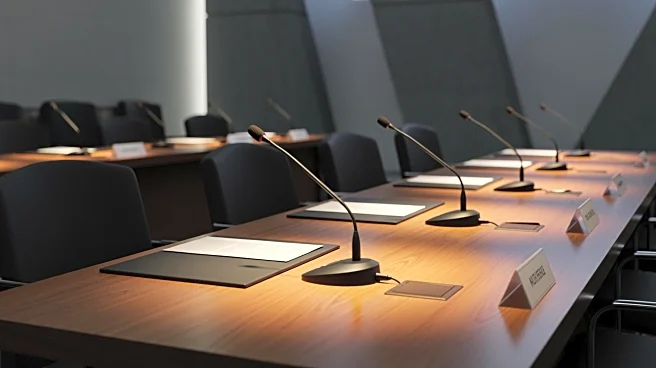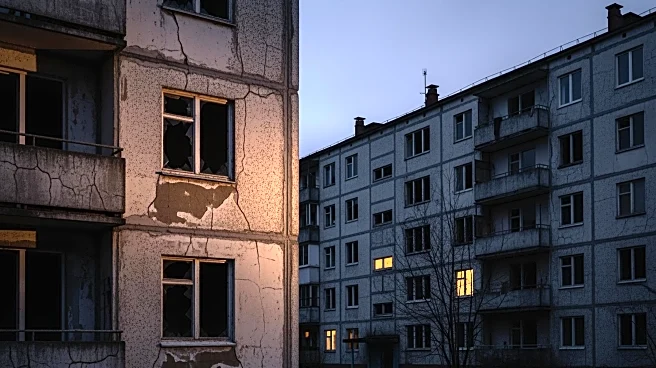What's Happening?
Washington, D.C. Mayor Muriel Bowser has expressed concerns over the presence of more than 2,000 National Guard troops authorized by President Trump to address crime in the capital. As students return to school, Bowser emphasized that federal agencies are not needed to ensure student safety. The school year begins with high proficiency rates in English language arts and math, marking a significant improvement since the COVID-19 pandemic. Despite the law enforcement surge, Bowser believes existing local strategies, such as the safe passage program, are sufficient for student safety. Metropolitan Police Department Chief Pamela Smith acknowledged improvements in safety due to federal agents, while Bowser maintains that the crime rate had already decreased before the surge.
Why It's Important?
The deployment of National Guard troops in Washington, D.C. raises questions about the balance between federal intervention and local governance. Mayor Bowser's stance highlights concerns over militarization in civilian areas, especially as students return to school. The situation underscores the ongoing debate about the role of federal forces in local law enforcement. While some community members find the presence of federal agents beneficial, others worry about the implications for civil liberties and community relations. The issue is significant for urban areas grappling with crime and safety, impacting public policy and community trust.
What's Next?
Mayor Bowser and local education officials will continue to focus on community-based safety strategies as the school year progresses. The effectiveness of the National Guard's presence will likely be evaluated, influencing future decisions on federal involvement in local law enforcement. Stakeholders, including parents and educators, may advocate for more localized solutions to ensure student safety without federal intervention. The broader implications for federal-local relations in law enforcement could lead to policy discussions at both local and national levels.
Beyond the Headlines
The deployment of federal troops in civilian areas raises ethical and legal questions about the militarization of public spaces. The situation in Washington, D.C. could set a precedent for other cities facing similar challenges, potentially influencing national policy on federal intervention in local matters. The cultural impact of such measures may affect community trust and perceptions of safety, prompting discussions on the appropriate balance between security and civil liberties.








